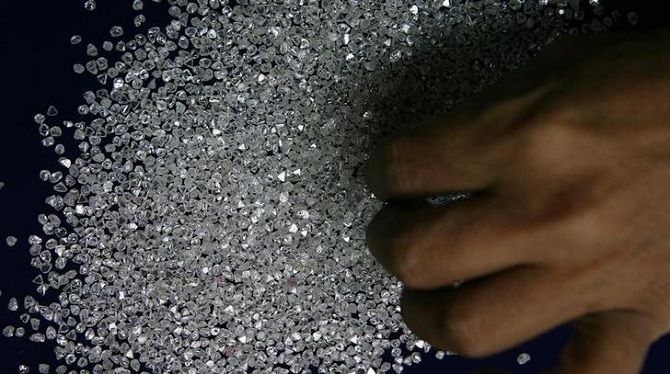Russia Issues Strong Warning Against Western Interference in Kimberley Process
The Kimberley Process, established to ensure the welfare of member states, local communities, and the entire diamond industry, is now at the center of a contentious debate. The letter, issued by Russia, raises serious concerns regarding the purported Western insistence on reshaping the KP to align with their geopolitical interests, despite being refused by the majority within the KP.

Advertisement
Surat : In an escalating standoff within the global diamond industry, Russia has issued a stern letter to the Kimberley Process (KP) chair, all KP participants, and observers, decrying what they term as unwarranted interference from Western nations, specifically the G7 and the European Union.
The Kimberley Process, established to ensure the welfare of member states, local communities, and the entire diamond industry, is now at the center of a contentious debate. The letter, issued by Russia, raises serious concerns regarding the purported Western insistence on reshaping the KP to align with their geopolitical interests, despite being refused by the majority within the KP.
In a letter addressed to Zhemu Soda, chair of the Kimberley Process and KP Participant countries on October 26, 2023, Russia asserts that the Western countries are stubbornly pressing for alterations to the KP’s structure, aiming to introduce a multilateral mechanism that favors their interests, effectively distorting the current principles of pluralism, consensus, and equality among participants.
The letter highlights the Western nations’ campaign to tarnish the KP’s reputation, intentionally undermining its role and achievements, while simultaneously advocating for their own regulatory mechanisms within the global diamond market.
Of particular concern to Russia are the efforts made by the Western countries during the annual UNGA draft resolution discussions regarding the role of diamonds in conflict. The Western nations allegedly attempted to downplay the KP’s accomplishments and question its efficacy, pushing for a revision of the KP’s foundations to introduce a political component, particularly in interpreting conflict diamonds.
Accusations in the letter underscore the Western campaign against Russia within the KP, utilizing open dialogue principles unscrupulously for their smear campaign.
Furthermore, Russia strongly opposes the attempts to disrupt the forthcoming plenary meeting’s agenda and condemns the discrimination against Belarus, the sole nominee for the KP vice-chairmanship and chairmanship in 2024-25.
The letter warns that any imposition of sanctions on the Russian diamond sector, already in place or yet to be announced by the G7, would distort the market, ultimately affecting the most vulnerable communities. Russia suggests that these measures could erase the achievements realized through the KP, potentially leading to social unrest and insurgency in affected regions.
Russia urges KP participants to uphold the integrity of the KP Certification Scheme, emphasizing the potential adverse impact of the Western actions on the global diamond market and the local communities of producing and processing countries.
In a bid to demonstrate compliance with KP minimum requirements, Russia has offered to host a review visit in 2024, maintaining that their state-controlled system over the production, import, and export of rough diamonds ensures compliance.
As the KP’s fate hangs in the balance, Russia has appealed for constructive cooperation during the forthcoming plenary, warning that the KP could face decay or become a geopolitical instrument in the hands of the West if not navigated carefully.
The impending KP plenary, according to Russia, stands as a critical juncture that will decide the fate of the Kimberley Process – either as an efficient and well-balanced regulatory mechanism or as a tool manipulated for geopolitical interests.
The stakes are high as the future of the Kimberley Process remains uncertain amid growing tensions between the Western bloc and Russia, posing significant implications for the global diamond market and the industry at large.
Advertisement

